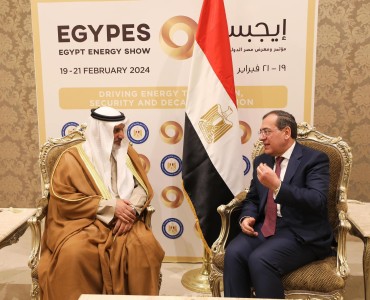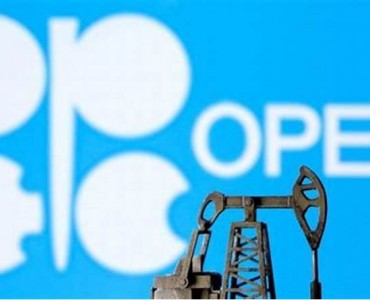Algeria is seeking to coordinate a global response from oil-producing nations to tumbling prices, Algeria Press Service reported, citing Energy Minister Youcef Yousfi. Crude traded near a six-year low in New York on Tuesday.
“The drastic fall in oil prices has had an extremely negative impact on the economies of all exporting countries, whether OPEC or not members of the Organization of Petroleum Exporting Countries,” Yousfi said after a meeting in Algiers with Angolan Oil Minister Jose Maria Botelho de Vasconcelos. Nigeria’s ambassador to Algiers also attended the discussions.
U.S. oil futures slumped to the lowest level since March 2009 on speculation that record supply may start to strain the country’s storage capacity. West Texas Intermediate for April delivery dropped as low as $43.57 a barrel in electronic trading on the New York Mercantile Exchange at 12:29 p.m. Singapore time. Brent for May settlement added 5 cents to $53.99 a barrel on London’s ICE Futures Europe exchange.
The meeting in Algiers was part of an initiative by Abdelaziz Bouteflika, the North African country’s president, to increase dialogue between oil exporters, members and non-members of OPEC, and to restore balance to the oil market, APS reported. Nigeria and Angola are OPEC members.
So Important
As part of Bouteflika’s initiative, messages have been sent since last month to Saudi Arabia, Oman, Azerbaijan, Kazakhstan, Mexico, Russia, Colombia, Nigeria, Gabon, Angola, Congo and Equatorial Guinea, APS said. Bouteflika earlier Monday discussed the oil price decline with Borge Brende, the foreign minister of non-OPEC producer Norway, APS said.
“The impact of the oil price decline is so important, especially for African countries, that it is necessary that we all remain together to share our experience and come up with strategies that would allow us to find a solution,” Nigerian Ambassador Haruna Ginsau said, according to APS. Angola’s de Vasconcelos said he “exchanged viewpoints and thinking on the international oil market situation.”
Crude dropped 61 percent from June to January after OPEC, the supplier of 40 percent of the world’s oil, signaled in November it would leave U.S. shale producers and other suppliers to bear the brunt of the glut. Saudi Arabia, OPEC’s largest producer, led the 12-member organization to keep its target production unchanged at 30 million barrels a day.
Iran could raise oil exports by 1 million barrels a day within a few months should international sanctions imposed on the OPEC member be lifted, Oil Minister Bijan Namdar Zanganeh told reporters Monday as talks resumed in Lausanne, Switzerland, on the nation’s nuclear program.
U.S. Secretary of State John Kerry told reporters at the weekend that “important gaps” remained going into the Lausanne talks with Iranian Foreign Minister Mohammad Javad Zarif, and that the U.S. is ready to walk away if the two countries can’t reach a satisfactory deal before the end-of-March deadline.
Source: Bloomberg












